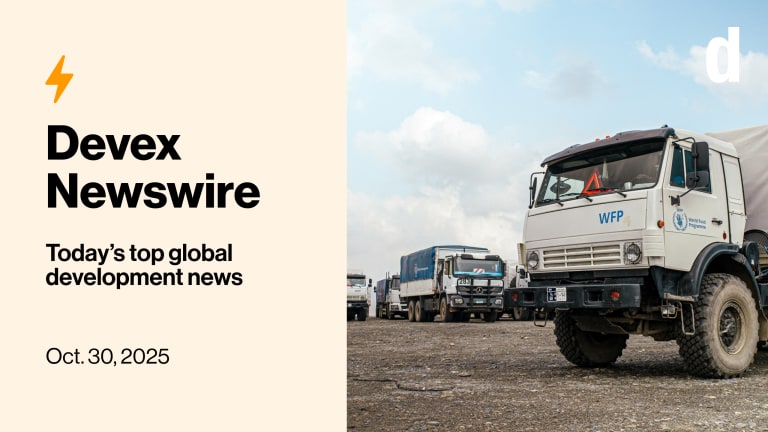To tackle hunger in Africa, leaders need to learn how to better deliver their messages to stakeholders and the general public. They must also shed some institutional ego to create more effective partnerships in the field, while at the same time rethinking the role of gender in rural development.
Those were the key messages imparted to the top brass of the agricultural development community by Sir Gordon Conway, a leading figure in that world for about half a century, during an exclusive interview with Devex in Paris.
At a point in his life when many people might prefer to tend to their backyard gardens, Conway has embarked on a new intercontinental mission. For years he maintained his status as a top agricultural development scholar while helping to run high-profile organizations, including stints as president of the Rockefeller Foundation and the Royal Geographical Society.
This story is forDevex Promembers
Unlock this story now with a 15-day free trial of Devex Pro.
With a Devex Pro subscription you'll get access to deeper analysis and exclusive insights from our reporters and analysts.
Start my free trialRequest a group subscription







